Resources
Here you can search external resources from STOP Spillover's experts (tagged in blue) and resources developed by the STOP Spillover project (tagged in red).
We found 16 resources.
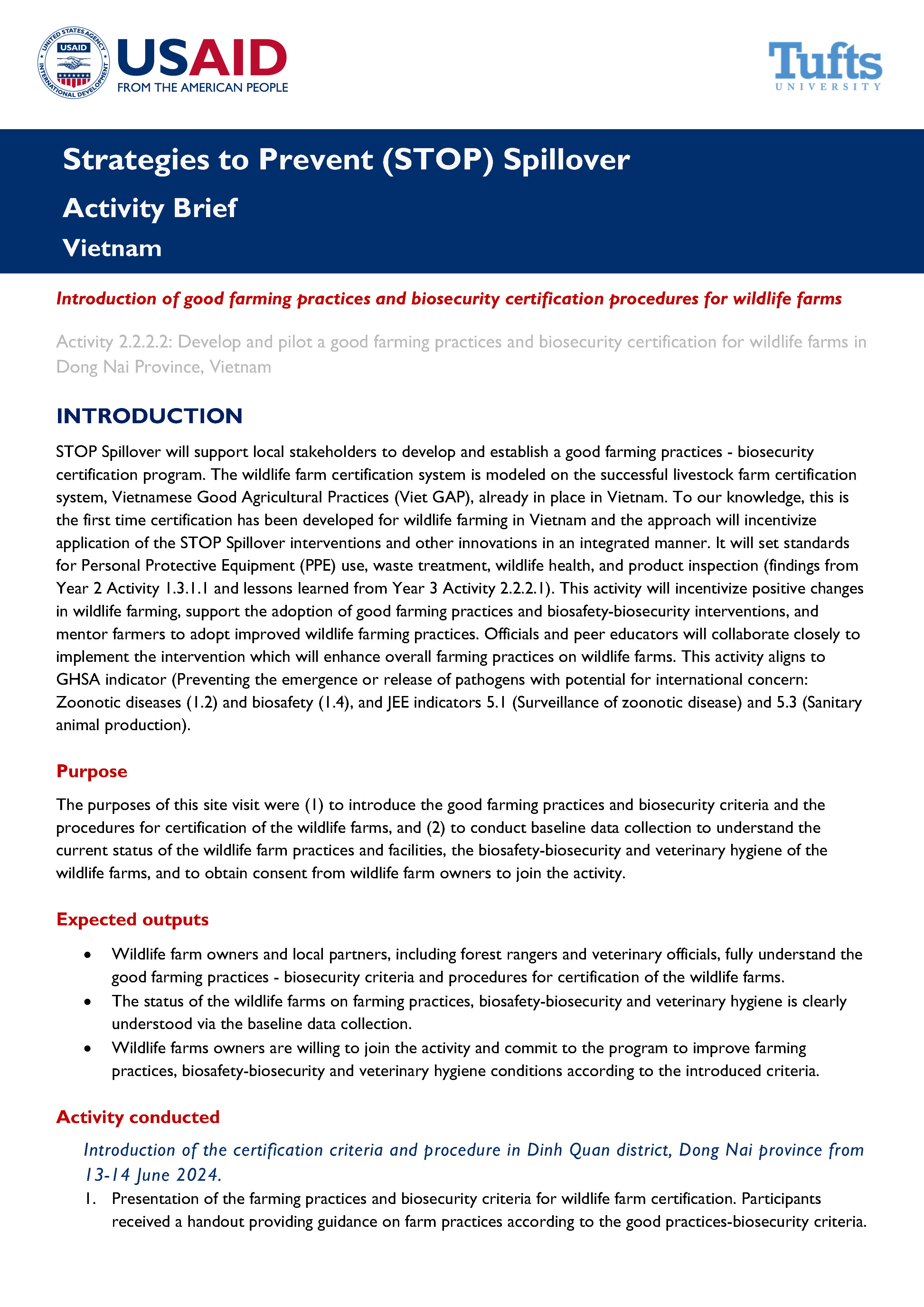
This brief describes the introduction of good farming practices, biosecurity criteria, and procedures for the certification of the wildlife farms to wildlife farm owners and local partners and the collection of baseline data on wildlife farms to assess the status of farm practices, biosafety-biosecurity, and veterinary hygiene.
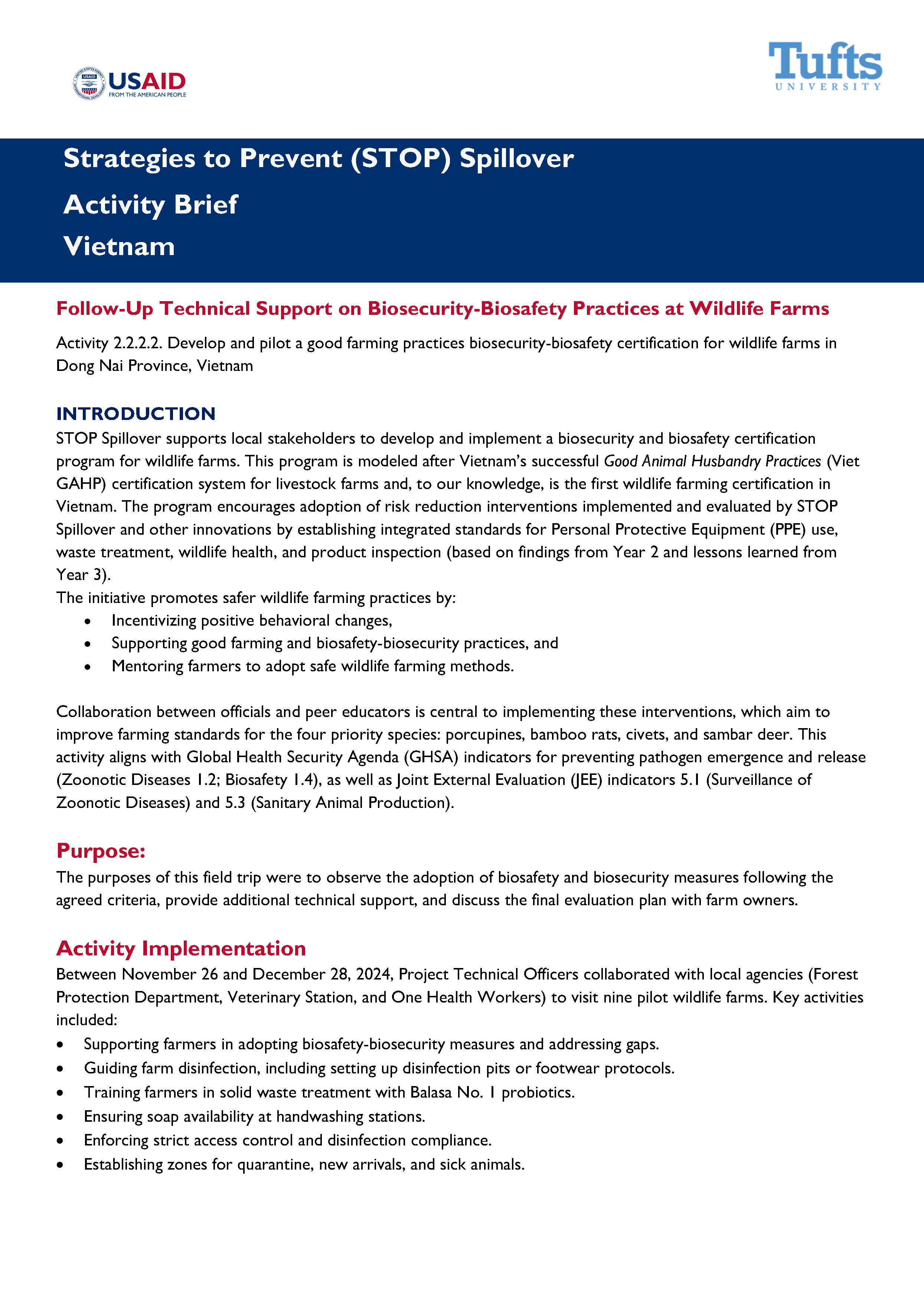
Activity Brief: Follow-Up Technical Support on Biosecurity-Biosafety Practices at Wildlife Farms
This brief summarizes visits that the STOP Spillover Viet Nam Country Team made to nine pilot wildlife farms to observe the adoption of biosafety and biosecurity measures, provide additional technical support, and discuss the final evaluation plan with farm owners.
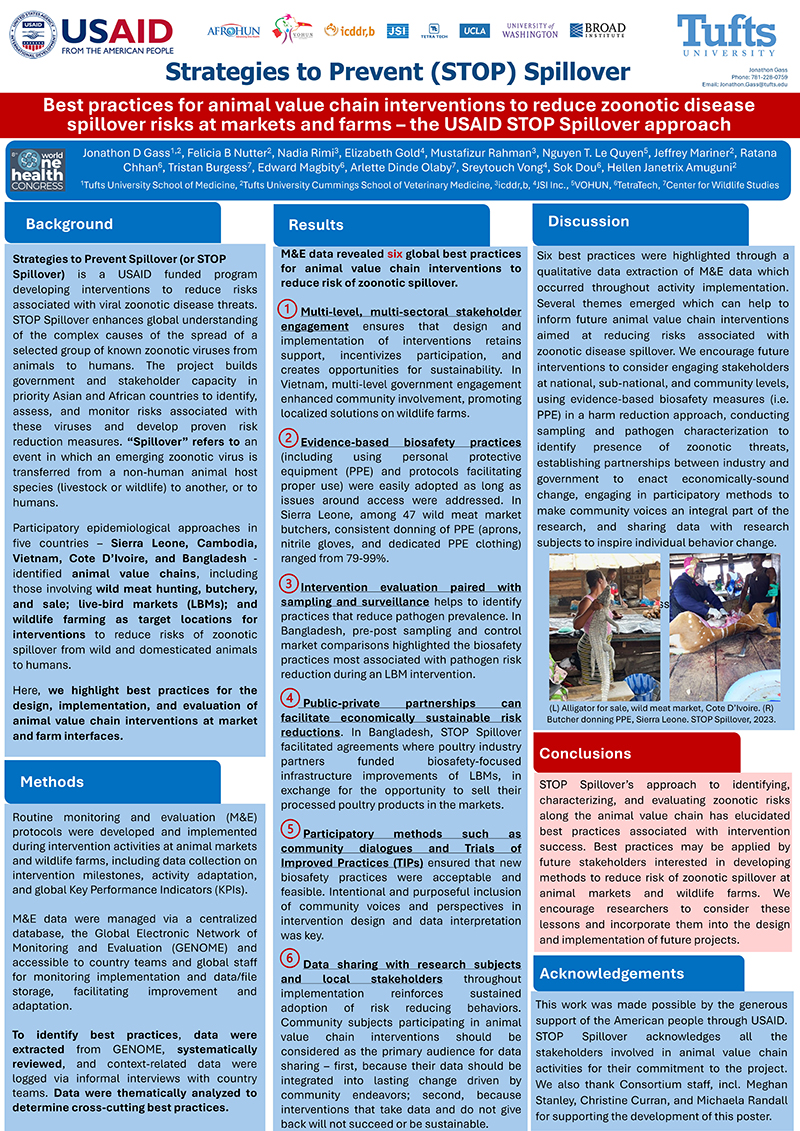
This STOP Spillover poster, presented at the 8th World One Health Congress 2024, describes six best practices for the design, implementation, and evaluation of animal value chain interventions at market and farm interfaces. The best practices were identified through qualitative data extraction of monitoring and evaluation data.
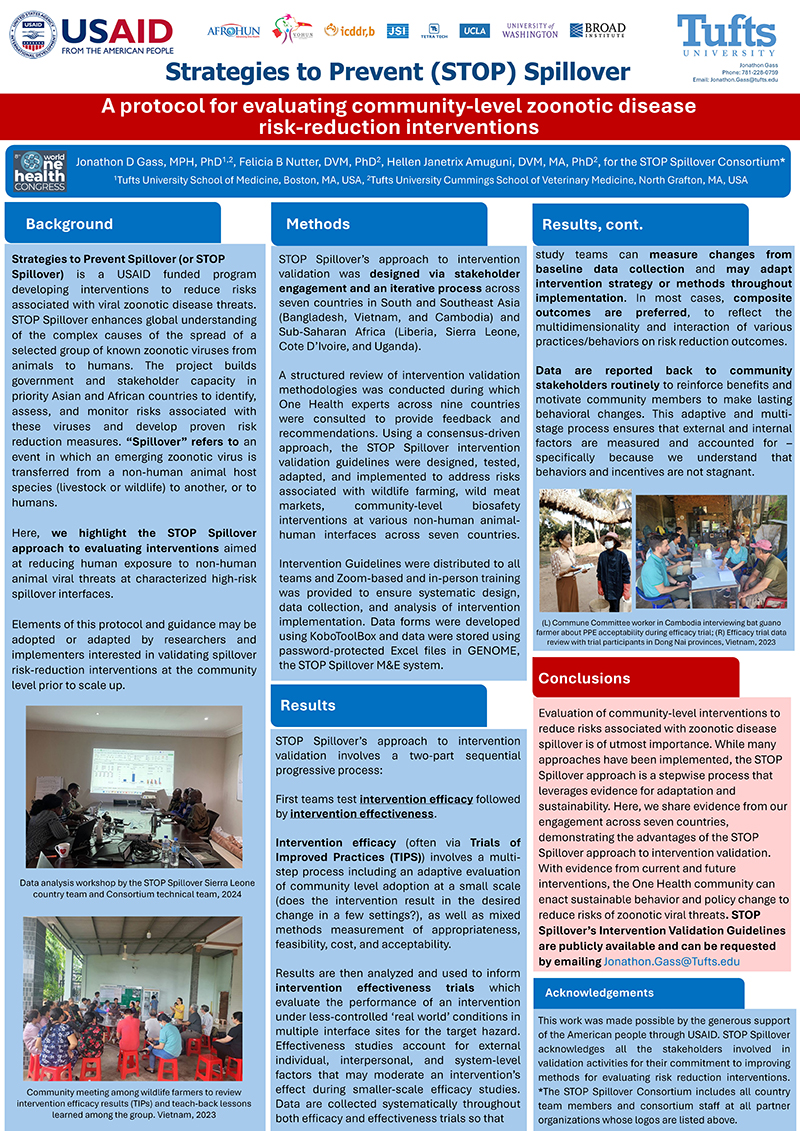
A Protocol for Evaluating Community-Level Zoonotic Disease Risk Reduction Interventions
This STOP Spillover poster, presented at the 8th World One Health Congress 2024, describes the project's approach to intervention validation, which was designed via stakeholder engagement and an iterative process across seven countries in South and Southeast Asia and Sub-Saharan Africa to address risks associated with wildlife farming, wild meat markets, and community-level biosafety interventions at various non-human animal-human interfaces.
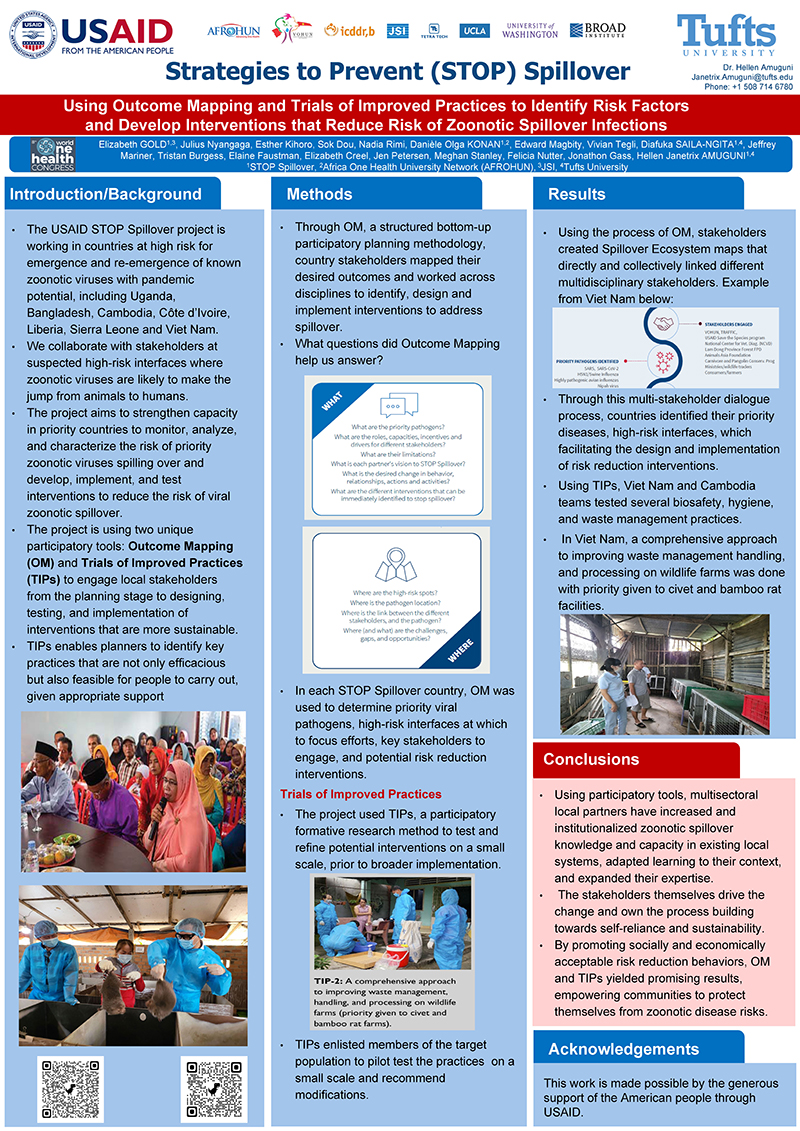
This STOP Spillover poster, presented at the 8th World One Health Congress 2024, describes the project's use of two unique participatory tools—Outcome Mapping and Trials of Improved Practices—to engage local stakeholders from the planning stage to designing, testing, and implementing interventions that are more sustainable.
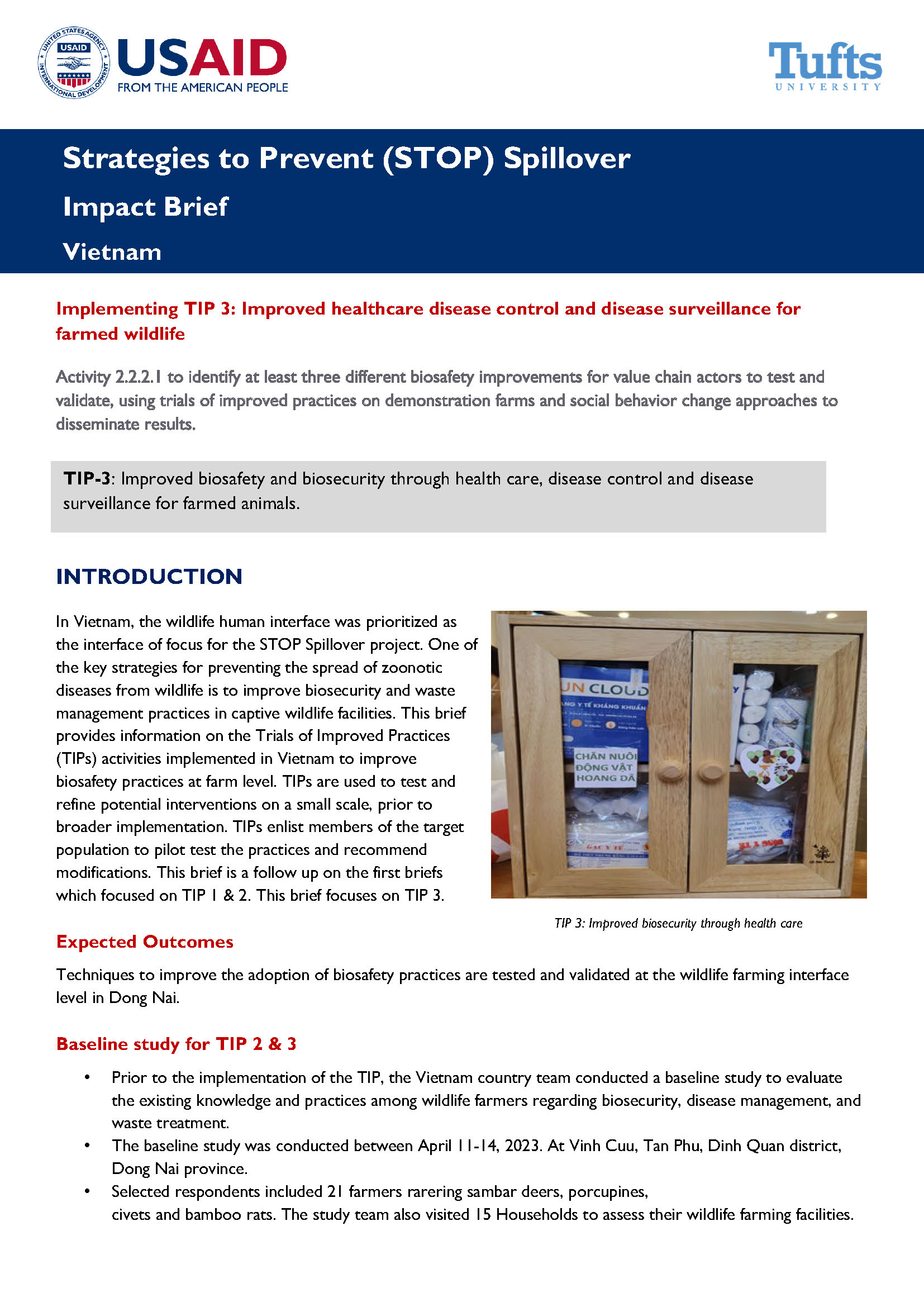
This brief summarizes implementation of a TIP (Trial of Improved Practices) related to improving biosecurity through healthcare disease control and disease surveillance in wildlife farms in Viet Nam. Following training, households that farmed civets, bamboo rats, porcupines, and Sambar deer farms in three districts committed to pilot biosecurity measures in animal husbandry, health monitoring, and disease prevention and treatment.
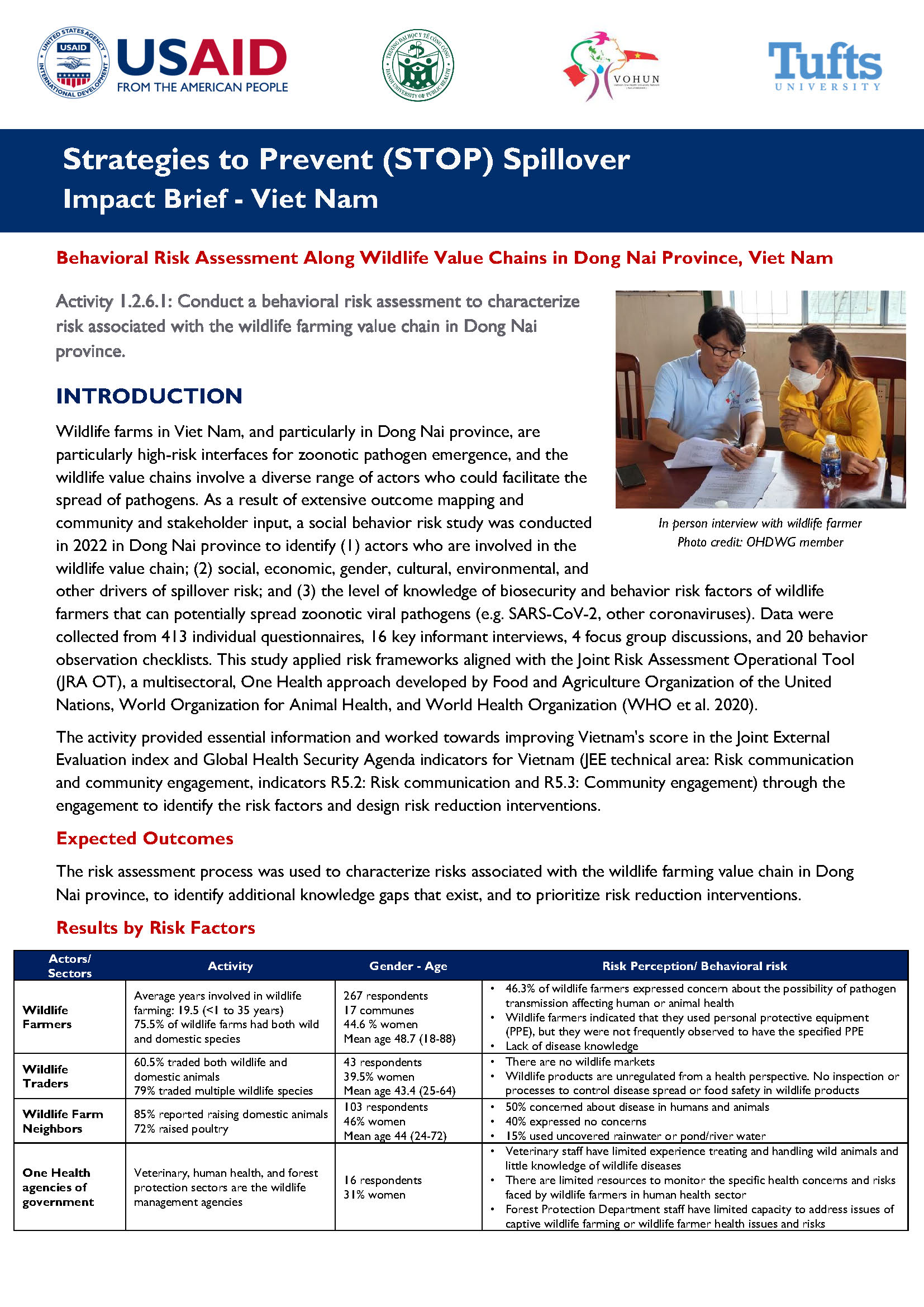
Impact Brief: Behavioral Risk Assessment Along Wildlife Value Chains in Dong Nai Province, Viet Nam
This brief summarizes a social behavior risk study that examined the risks associated with the wildlife farming value chain in Dong Nai province Viet Nam to identify knowledge gaps and prioritize risk reduction interventions.
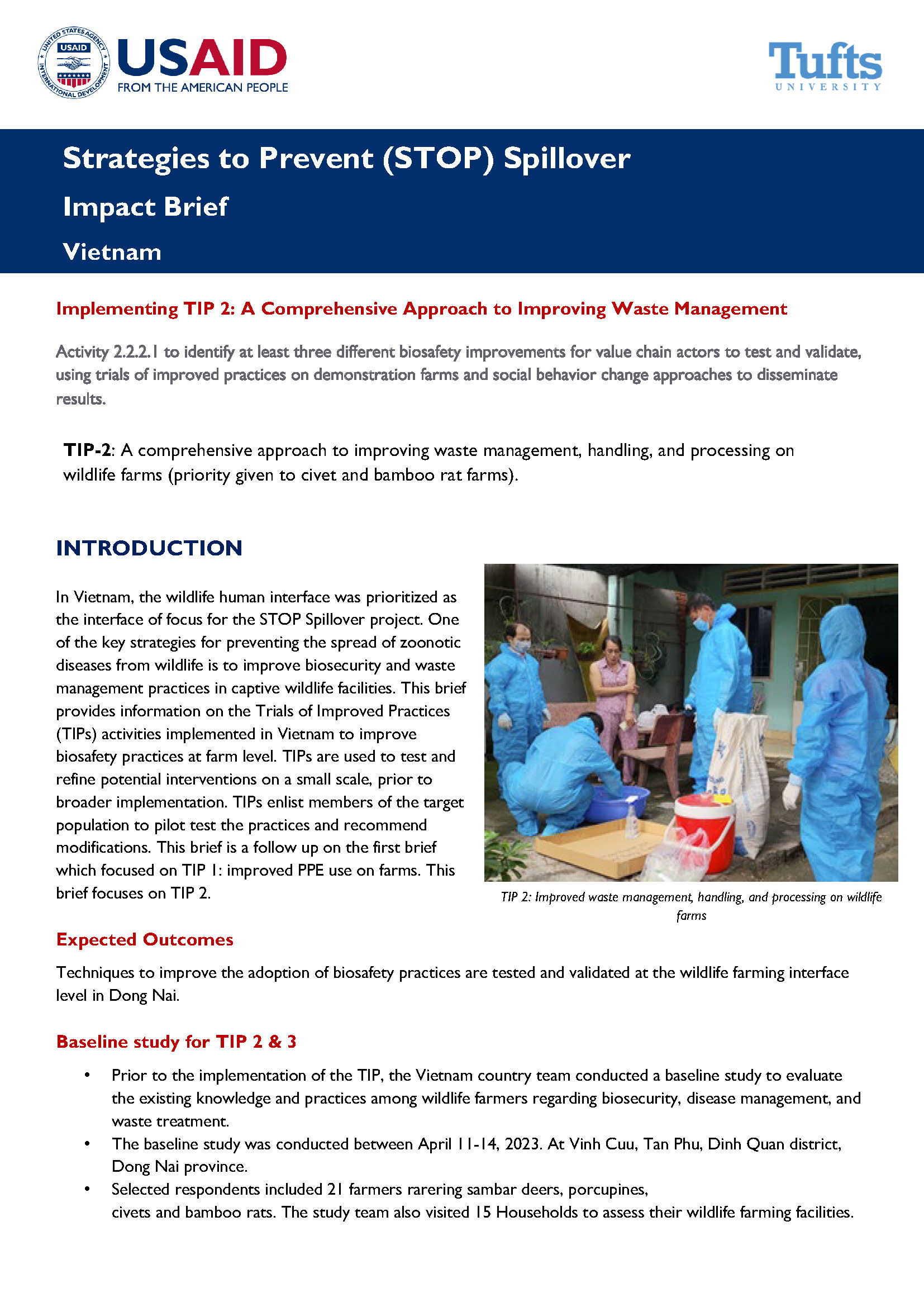
Impact Brief: Implementing TIP 2: A Comprehensive Approach to Improving Waste Management
This brief describes implementation of a TIP (Trial of Improved Practices) related to improving waste management, handling, and processing in wildlife farms in Viet Nam. Following a training, 13 civet-farming households and one bamboo rat-farming household began to practice manure treatment using composting trays with fermented probiotics.
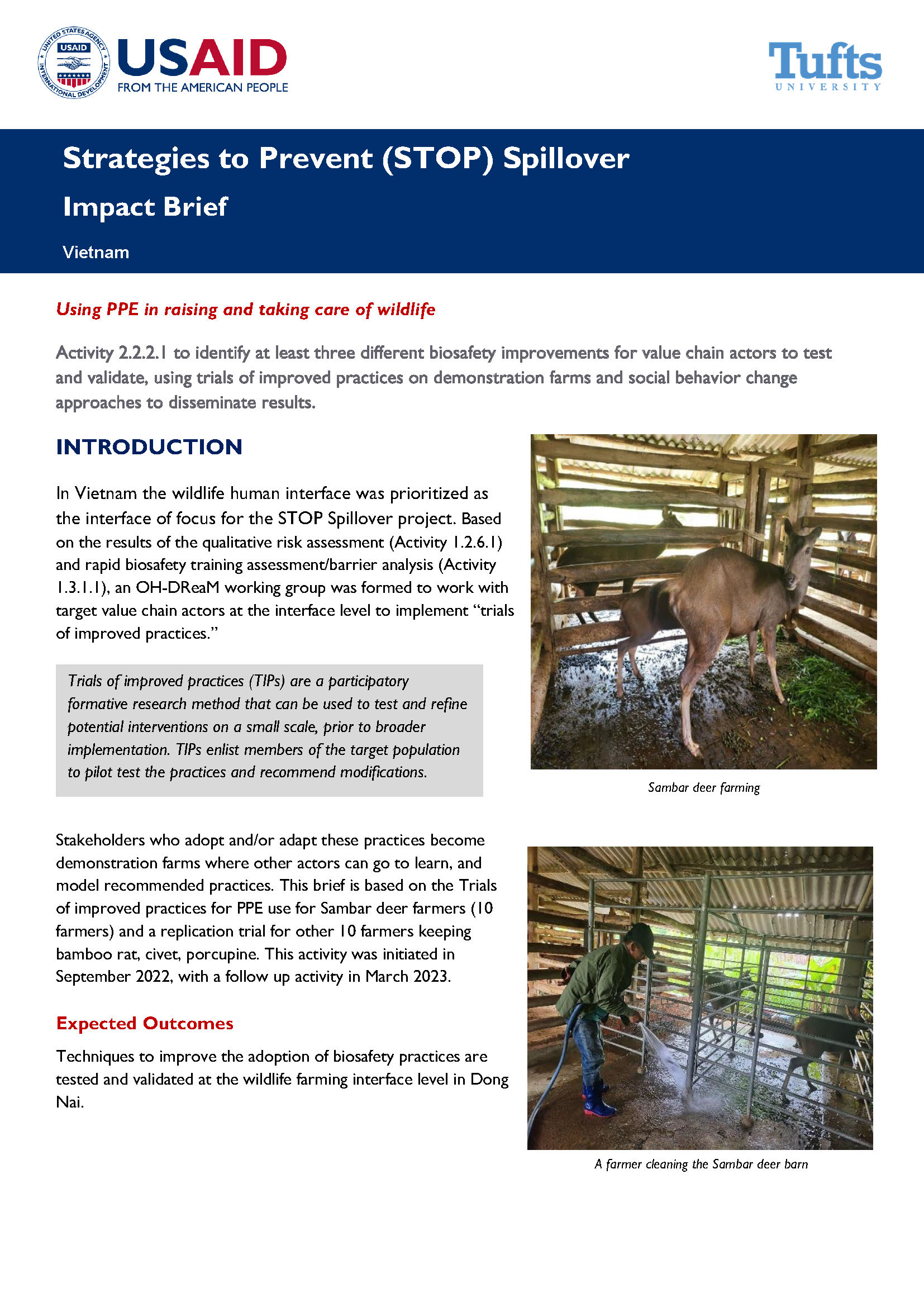
Impact Brief: Using PPE in Raising and Taking Care of Wildlife
This brief describes implementation of a TIP (Trial of Improved Practices) for Sambar deer farming and its replication in bamboo rat, civet, and porcupine farming. The TIP involved using personal protective equipment (e.g., protective clothing, face masks, gloves, boots) during farming activities.
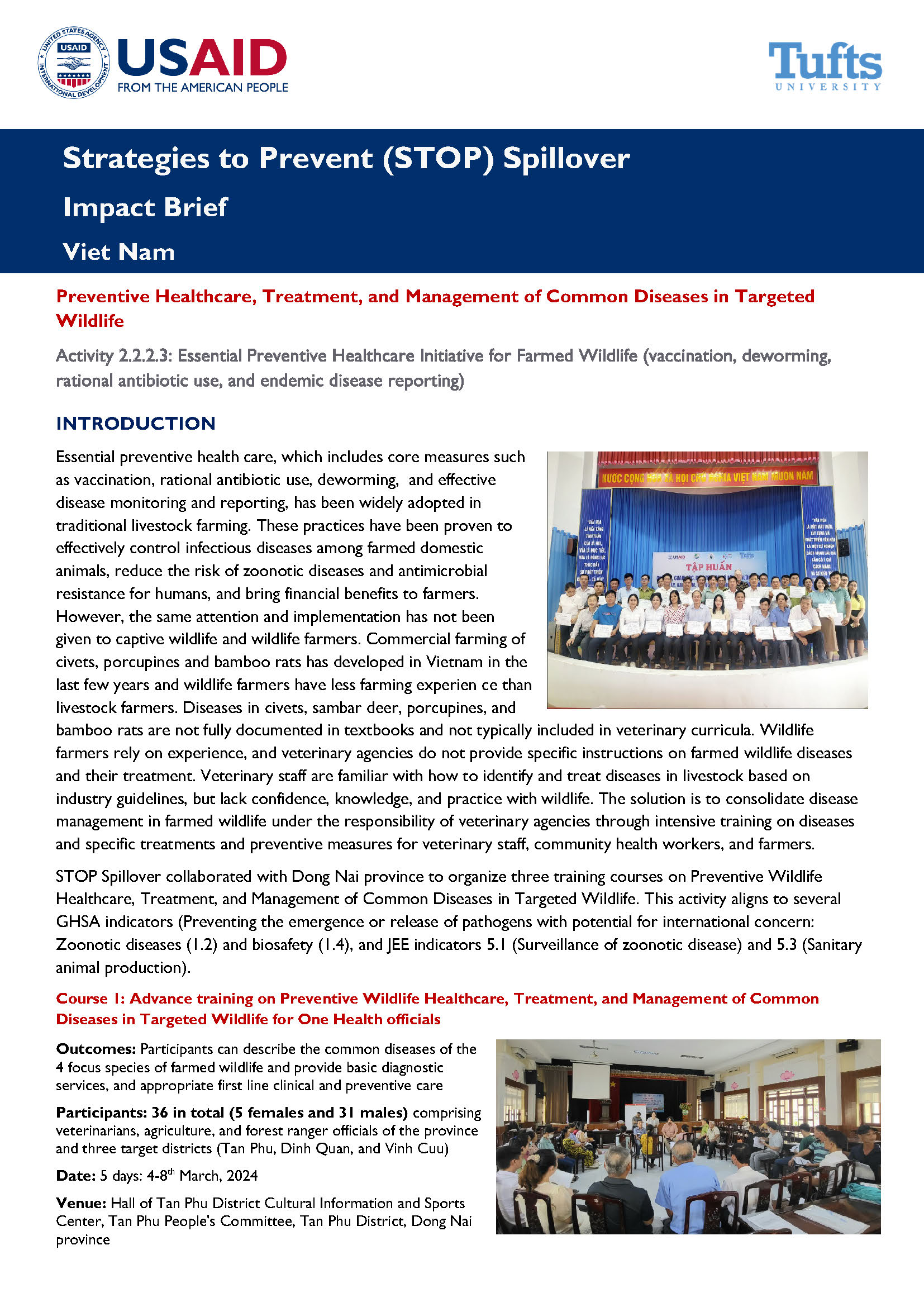
This brief summarizes three training courses on preventive wildlife healthcare, treatment, and the management of common diseases in targeted wildlife that were held for veterinary staff, community health workers, and farmers in Dong Nai province, Viet Nam.
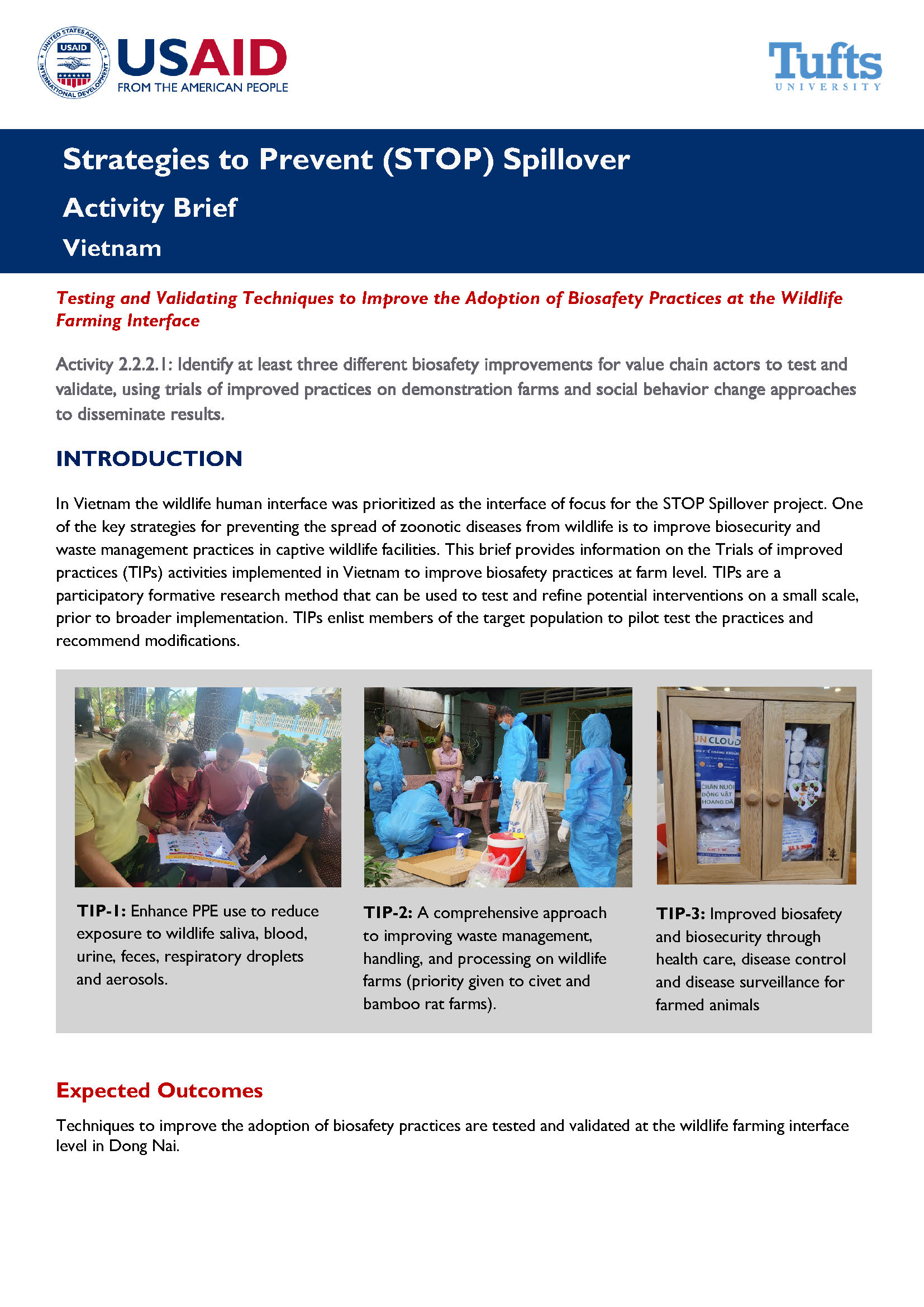
This brief summarizes three TIPS (Trials of Improved Practices) that were implemented in Dong Nai province in Vietnam to prevent the spread of zoonotic diseases from wildlife by improving biosecurity and waste management practices in captive wildlife facilities.
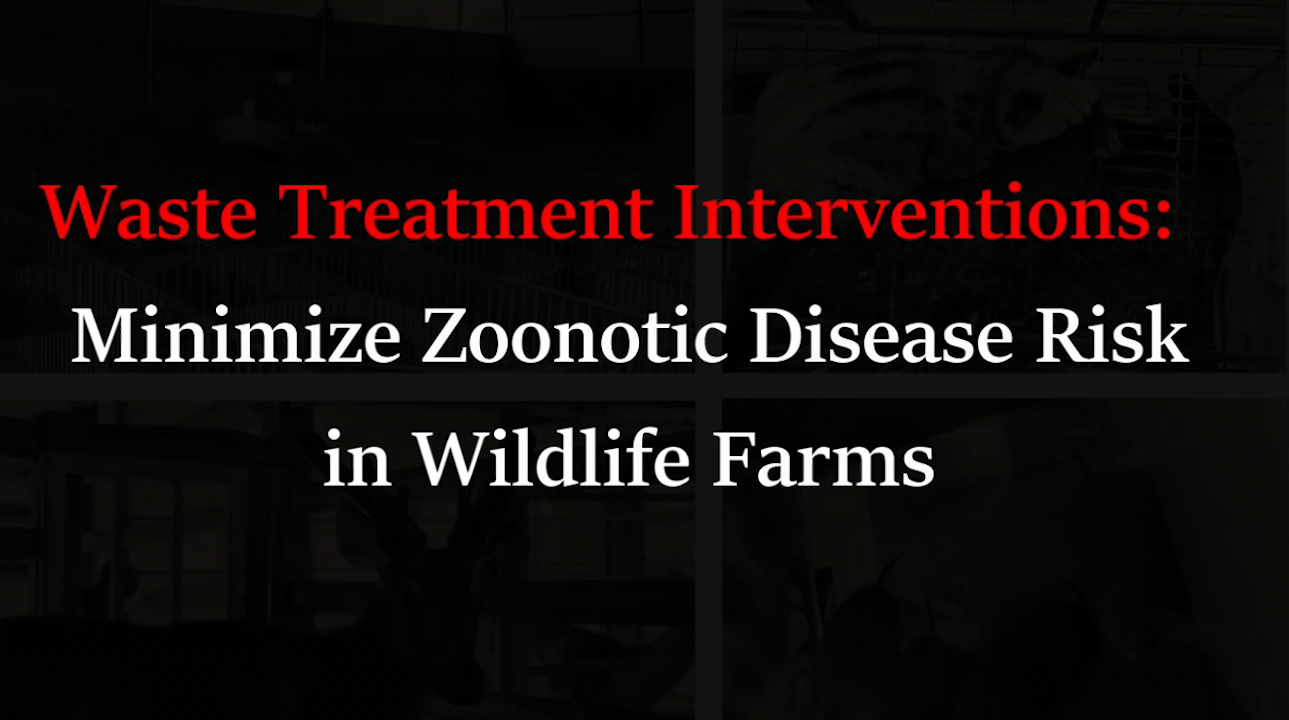
This video describes the STOP Spillover Viet Nam Country Team's work with partners and wildlife farmers in Dong Nai province to implement waste treatment interventions to reduce the risk of zoonotic disease transmission in wildlife farms.
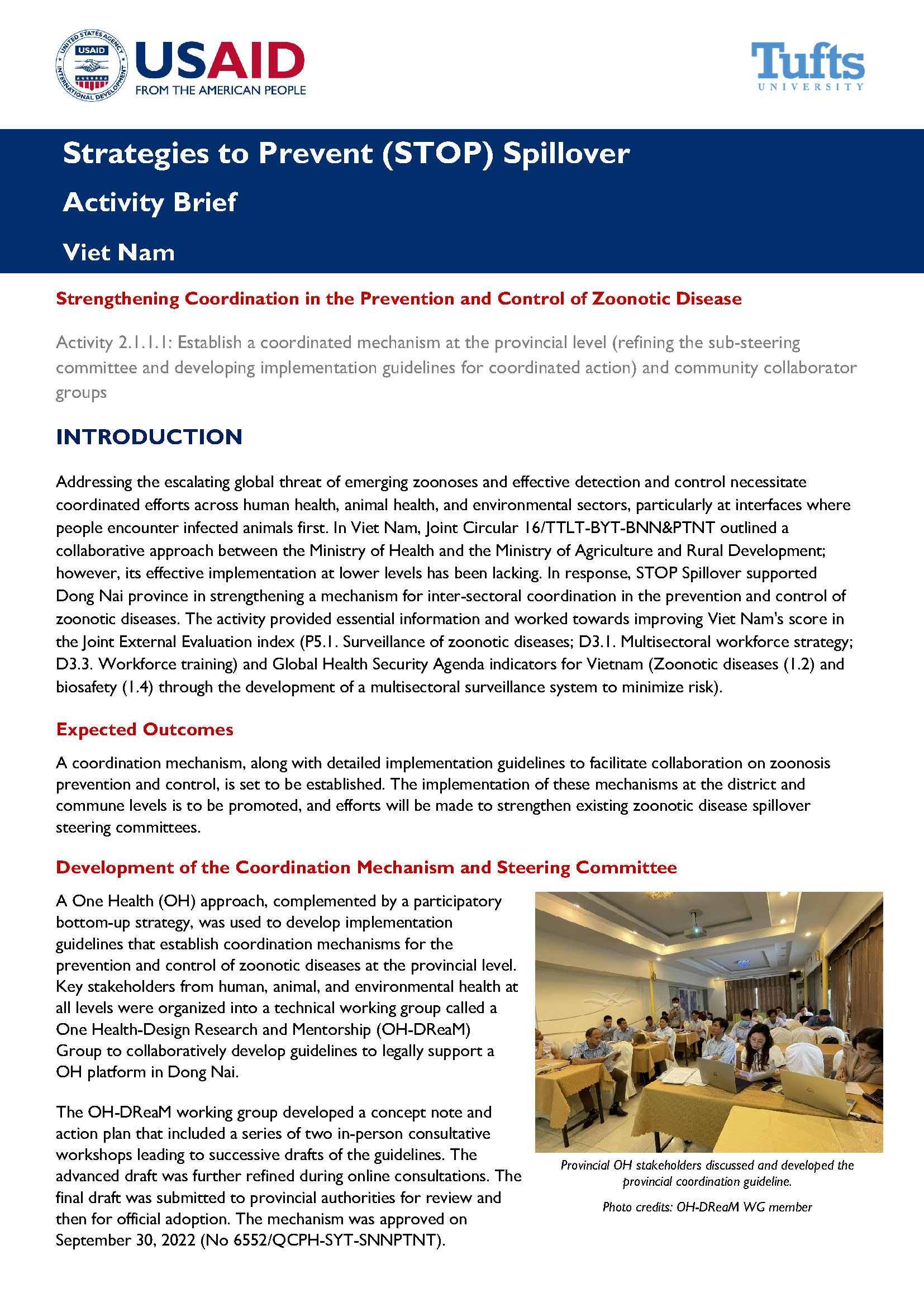
Impact Brief: Strengthening Coordination in the Prevention and Control of Zoonotic Disease
This brief summarizes the development of implementation guidelines that establish coordination mechanisms for the prevention and control of zoonotic diseases at the provincial level in Dong Nai province in Viet Nam. STOP Spillover then collaborated with the government to conduct dissemination workshops that prepared provincial-, district-, and commune-level stakeholders to apply the guidelines in their work and to facilitate collaboration on outbreak investigation and response.
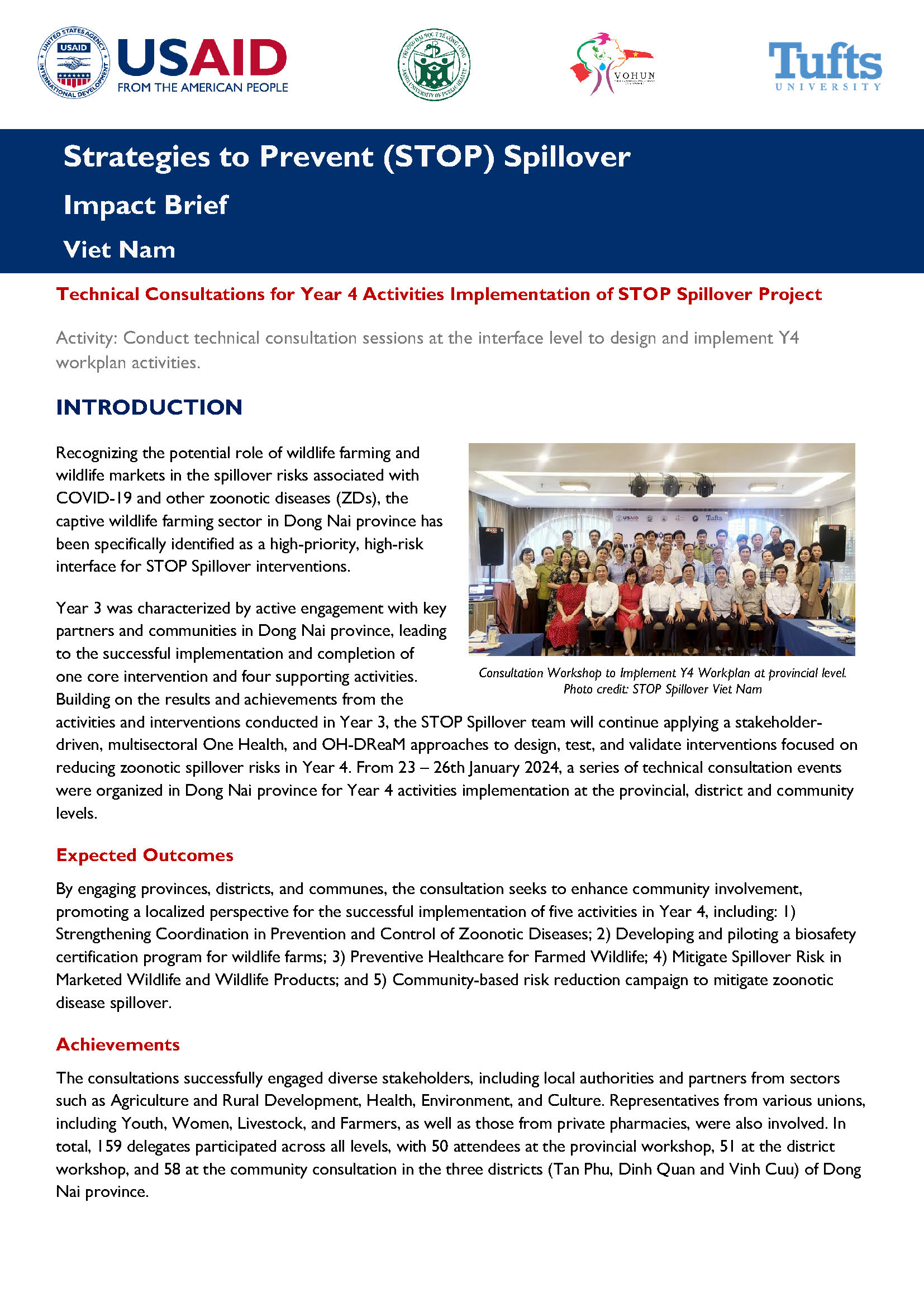
Impact Brief: Technical Consultations for Year 4 Activities Implementation
This brief describes a series of technical consultation events held with stakeholders in Dong Nai province on topics such as strengthening coordination to prevent and control zoonotic diseases, developing and piloting a biosafety certification program for wildlife farms, preventive healthcare for farmed wildlife, and a community-based risk reduction campaign to mitigate zoonotic disease spillover.
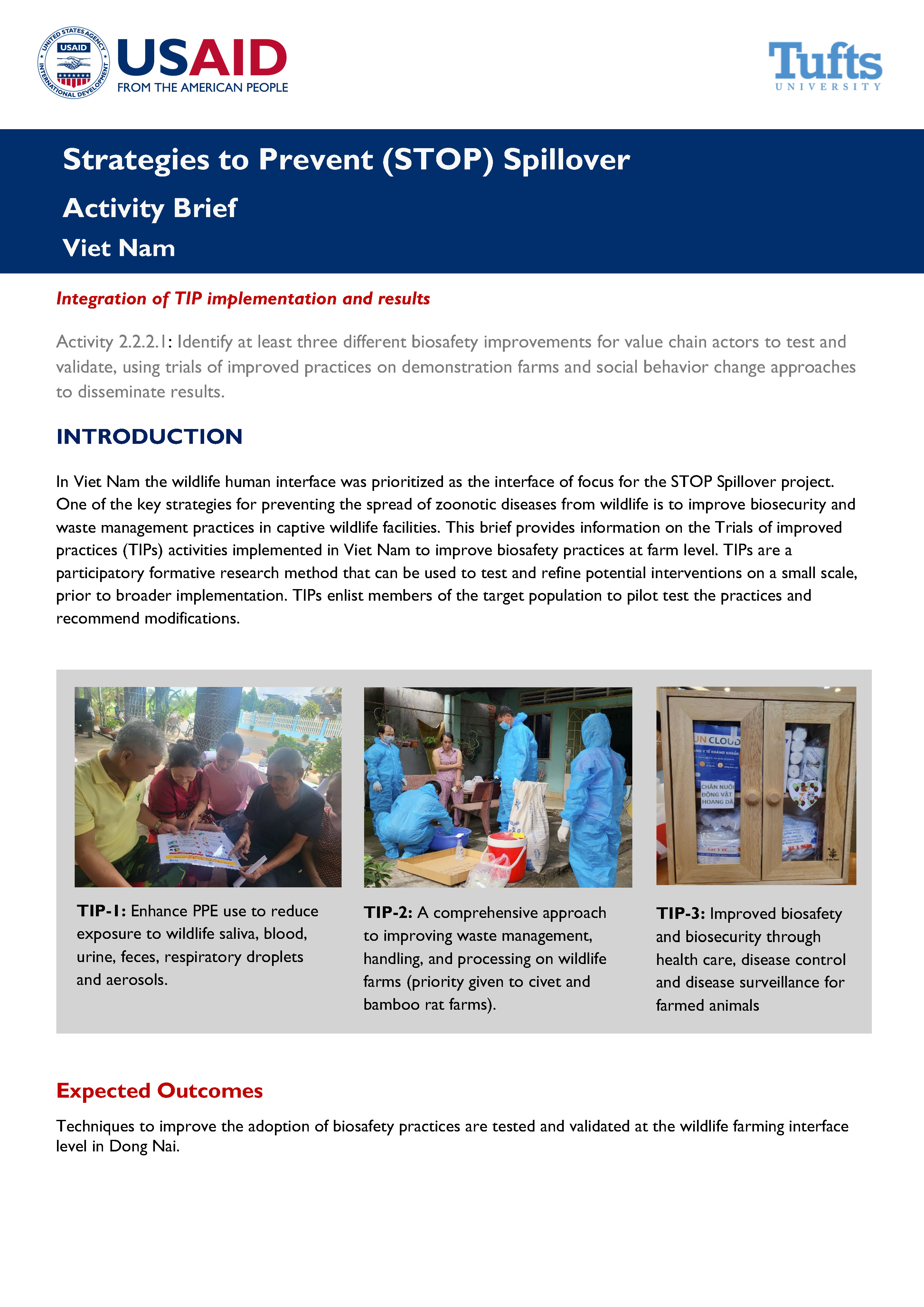
Activity Brief: Integration of TIPS Implementation and Results in Viet Nam
This brief describes the Trials of Improved Practices (TIPs) activities implemented in Viet Nam to improve biosafety practices at the farm level.
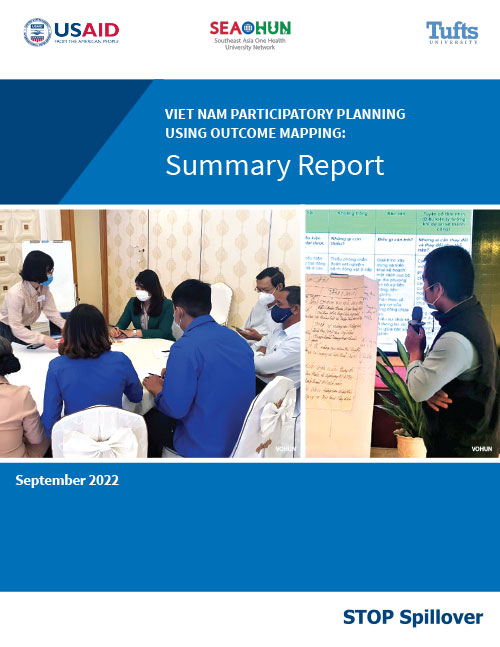
Viet Nam Participatory Planning Using Outcome Mapping: Summary Report
Through Outcome Mapping (OM), a structured participatory tool that uses a bottom-up collaborative process, spillover ecosystem stakeholders (both traditional and non-traditional) are empowered to identify and reduce zoonotic spillover risks at human-animal-environment interfaces and develop an outcome-oriented project action plan. This report outlines the details of the OM workshop activities in Viet Nam.